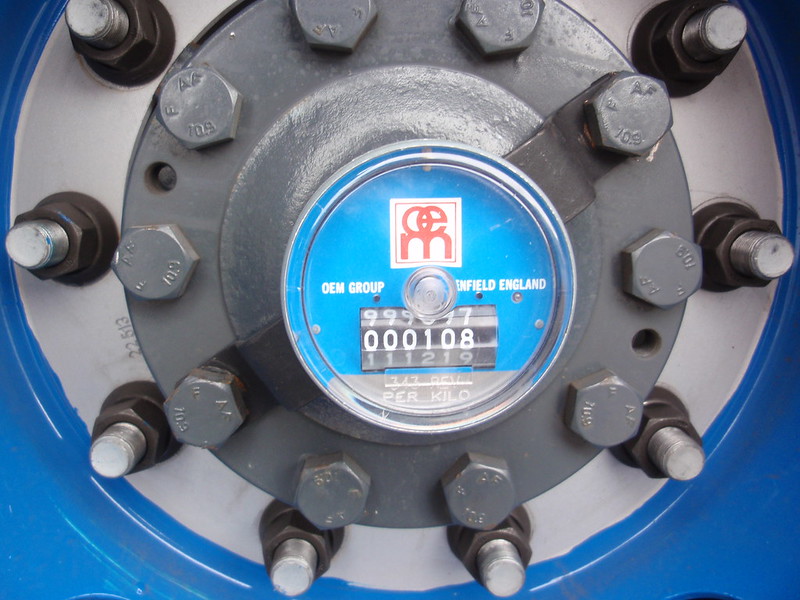How Does a Trailer Hub Odometer Ensure Accurate Billing for Trailer Usage?
- Hubodometer
- Comments Off on How Does a Trailer Hub Odometer Ensure Accurate Billing for Trailer Usage?
- Posted on

Introduction
Trailer hubodometer is essential device used to track the distance traveled by trailers. These odometers are crucial for ensuring accurate billing in trailer rentals and leases, providing precise data on trailer usage. With the importance of accurate billing in the trailer industry, understanding how Trailer hub odometers work and their benefits is vital for both rental companies and users.
Understanding Trailer Hub Odometers
- Definition and Basic Function
A Trailer hubodometer is a device attached to the wheel hub of a trailer that measures and records the distance traveled. It operates similarly to a vehicle odometer but is designed specifically for trailers. By accurately tracking mileage, these devices help rental and leasing companies monitor trailer usage, ensuring fair billing practices.
- Types of hub odometers
There are two main types of Trailer hubodometer: mechanical and electronic. Mechanical hub odometers rely on physical gears and wheels to measure distance, offering durability and simplicity. Electronic hub odometers, on the other hand, use digital technology to provide more precise readings and additional features like data storage and integration with fleet management systems. Both types have their own advantages, and the choice depends on the specific needs of the trailer operator.
- Installation and Compatibility
Trailer hub odometers are designed to be compatible with various trailer types, making them versatile tools for different fleets. Installation is typically straightforward, involving mounting the odometer on the trailer‘s wheel hub. Compatibility with different trailer models ensures that rental and leasing companies can implement these devices across their entire fleet, standardizing mileage tracking and billing processes.
Accurate Mileage Tracking
- How Trailer hubodometer Measures Distance Traveled
Trailer hub odometers measure distance by counting the rotations of the trailer’s wheels. Each rotation is translated into a specific distance traveled, providing an accurate measure of mileage. This method is highly reliable and offers a clear advantage over other mileage tracking methods, such as manual logs or GPS tracking, which can be prone to errors and discrepancies.
- Advantages Over Other Mileage Tracking Methods
One significant advantage of Trailer hubodometer is its resistance to tampering and fraud. Mechanical odometers, in particular, are difficult to alter without detection, ensuring that the recorded mileage is accurate and reliable. Electronic odometers often include tamper-evident features and data encryption, further enhancing their security. This reliability is critical for billing accuracy, as it eliminates the possibility of fraudulent mileage claims.
Ensuring Fair Billing Practices
- Eliminating Discrepancies in Manual Reporting
Manual mileage reporting can lead to significant discrepancies, either due to human error or intentional misreporting. Trailer hubodometer eliminates these discrepancies by providing an automated and objective measure of distance traveled. This automation ensures that billing is based on precise data, reducing disputes between rental companies and customers.
- Providing Concrete Evidence for Usage
With trailer hub odometers, rental companies can provide concrete evidence of trailer usage. The recorded mileage serves as a verifiable record that can be referenced in case of billing disputes. This transparency builds trust between rental companies and their customers, as both parties can rely on the data provided by the hub odometer.
- Resolving Disputes Between Lessors and Lessees
Accurate mileage tracking helps resolve disputes between lessors and lessees by offering an indisputable record of trailer usage. When both parties have access to reliable data, misunderstandings and conflicts are minimized, leading to smoother transactions and improved business relationships.
Benefits for Trailer Rental and Leasing Companies
- Precise Usage-Based Billing
For trailer rental and leasing companies, precise usage-based billing is a significant benefit of using hub odometers. By billing customers based on the actual distance traveled, companies can ensure fair and accurate charges. This precision helps in maintaining profitability while providing customers with transparent billing practices.
- Improved Fleet Management and Utilization
Hub odometers also contributes to improved fleet management and utilization. By tracking the mileage of each trailer, companies can schedule maintenance more effectively, reducing downtime and ensuring that trailers are in optimal condition. This proactive approach to maintenance extends the lifespan of trailers and enhances overall fleet efficiency.
- Enhanced Customer Trust and Transparency
Accurate billing practices foster trust and transparency with customers. When customers know that they are being charged fairly based on precise mileage data, their confidence in the rental company increases. This trust leads to repeat business and positive word-of-mouth referrals, benefiting the company in the long run.
Conclusion
Trailer hub odometers play a crucial role in ensuring accurate billing for trailer usage. By providing precise and reliable mileage tracking, these devices help eliminate discrepancies, prevent fraud, and foster transparency between rental companies and customers. The integration of Trailer hubodometer into billing systems enhances fleet management, improves customer satisfaction, and ultimately contributes to a more efficient and fair trailer rental and leasing industry.
